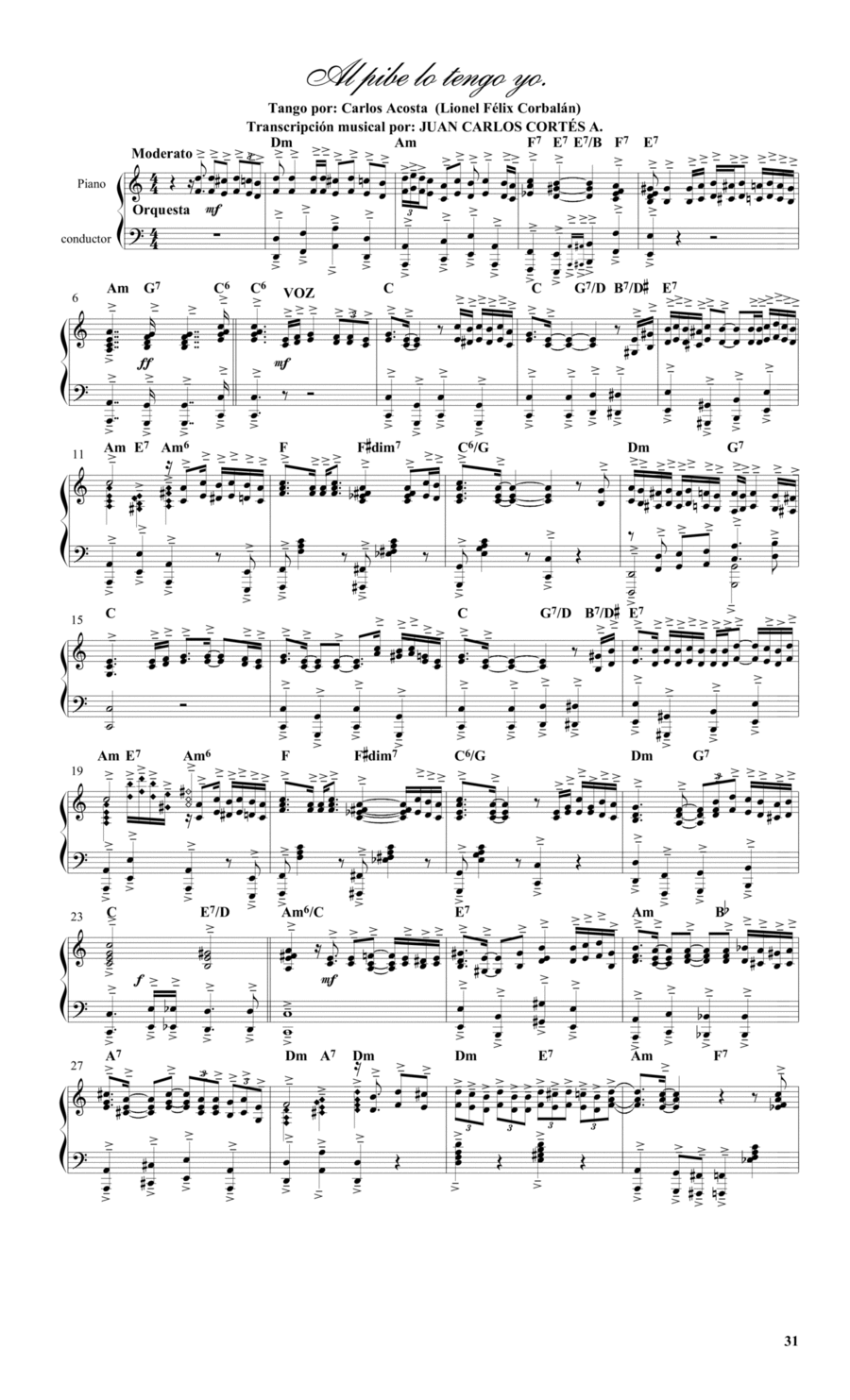Piano Solo - Level 4 - Digital Download SKU: A0.1120947 By Carlos Acosta (Lionel Félix Corbalán). By Carlos Acosta (Lionel Félix Corbalán). Arranged by Juan Carlos Cortés Aguirre. Folk,Instructional,Latin,Multicultural,Traditional,World. Score. 2 pages. Juan Carlos Cortés Aguirre #722137. Published by Juan Carlos Cortés Aguirre (A0.1120947). Transcripción para piano solo por: JUAN CARLOS CORTÃS A. AntologÃa especial con tangos y valses cantados por Enrique Campos. Al pibe lo tengo yo. Tango Letra y música: Carlos Acosta (Lionel Félix Corbalán) INTRODUCCIÃN: Lo que yo voy a decirte, sé que no te importa nada, pero yo sé que algún dÃa, esto lo vas a pensar, estás rodeada de lujos, de vento, y mil pavadas, pa´ mà lo perdiste todo, cuando dejaste el hogar. te marearon con el lujo, que yo no pude ofrecerte, pues al irte de mi casa, olvidaste lo mejor, podrás bañarte en el oro, que a vos te ayude la suerte, pero al pibe de mi vida... ¡Al pibe lo tengo yo! Esto sà que es un tesoro, que no conseguÃs con vento, porque un beso del purrete, nunca lo podrás pagar. Cuando te pinten las canas, y lo ficticio se acabe, recién sabrás lo que has hecho, el resto lo llorarás. INTERLUDIO: No pensés que lo que digo, es porque ya te he perdido, si no porque siento pena, por la vida que llevás. Yo tengo todo en el mundo, y es mi purrete querido, que veo crecer poco a poco, y que vos no verás más. Y podrás tener de todo, un bacán, un potentado, y pasearte con tú coche, y gozar de lo mejor, y codearte con la gente, que conmigo te hizo a un lado, Pero al pibe de mi vida... ¡Al pibe lo tengo yo!
